Minjae Kim furniture explores identity and belonging
Minjae Kim's ‘I Was Evening All Afternoon’ exhibition at Marta, Los Angeles (until 29 August 2021) reimagines archetypes from Western furniture design
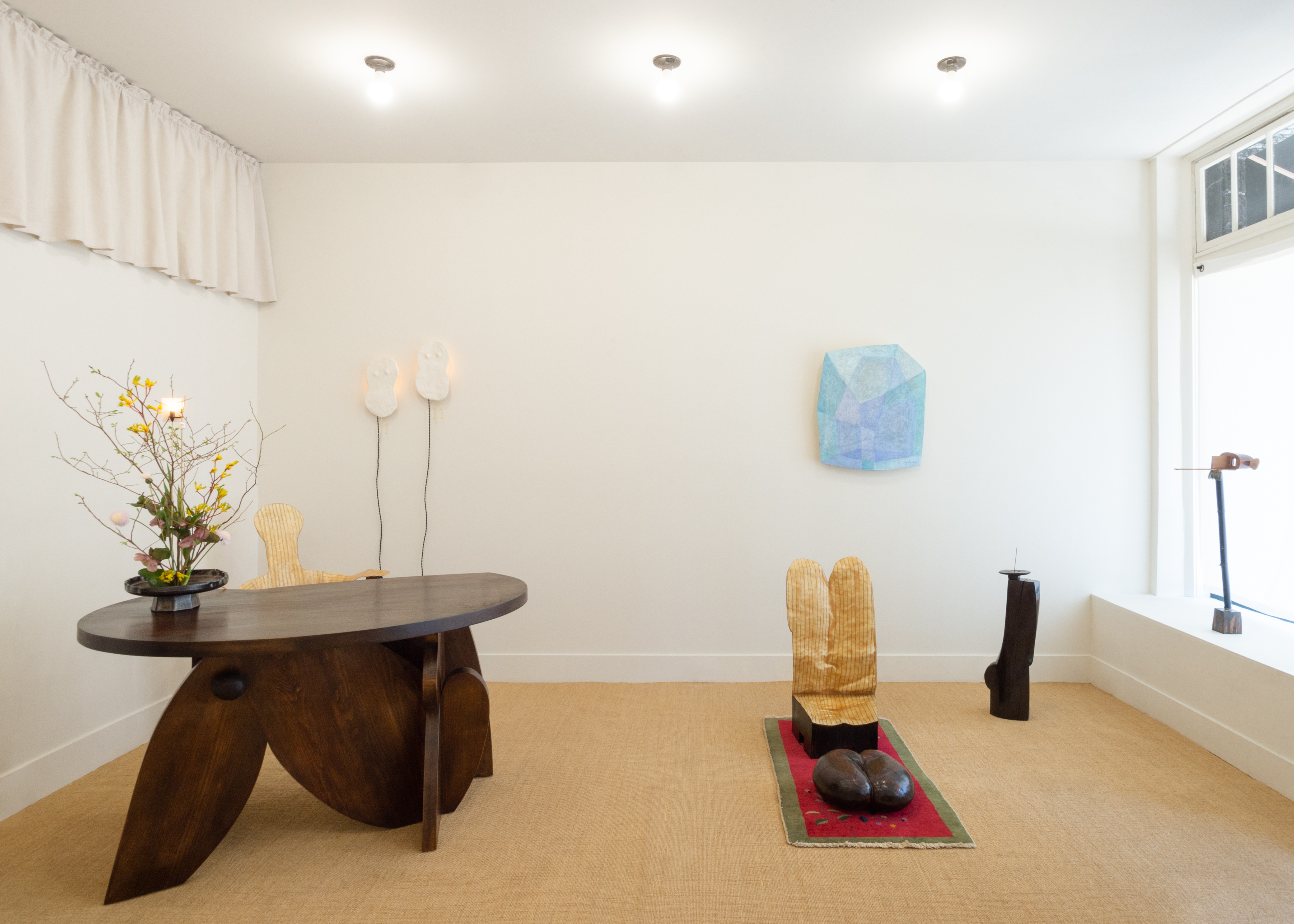
The ideas of identity and belonging are subtly expressed by the Korean-born designer/artist Minjae Kim in a new body of work being unveiled at the independent gallery Marta in Los Angeles (on show until 29 August 2021). Entitled ‘I Was Evening All Afternoon’, which nods to a line in Wallace Stevens’ poem ‘Thirteen Ways of Looking at a Blackbird’, Kim’s debut exhibition in LA poetically navigates the idea of being in two places at once, whether its as an insider or outsider, an immigrant or a native, or being seen as familiar or exotic.
These may seem like high ideals to articulate in object form, but in Kim’s hands, they spring to life in the shape of reimagined archetypes of Western furniture design. A stout writing desk, made from solid beechwood and lacquer, is composed with figurative cut-out forms that nod to Matisse (to whom it is imagined for). A chaise longue, imbued with a palpable delicacy due to Kim’s use of quilted fibreglass for its seat and back, cuts a strong and luxurious figure with its lacquered teak headrest and legs.
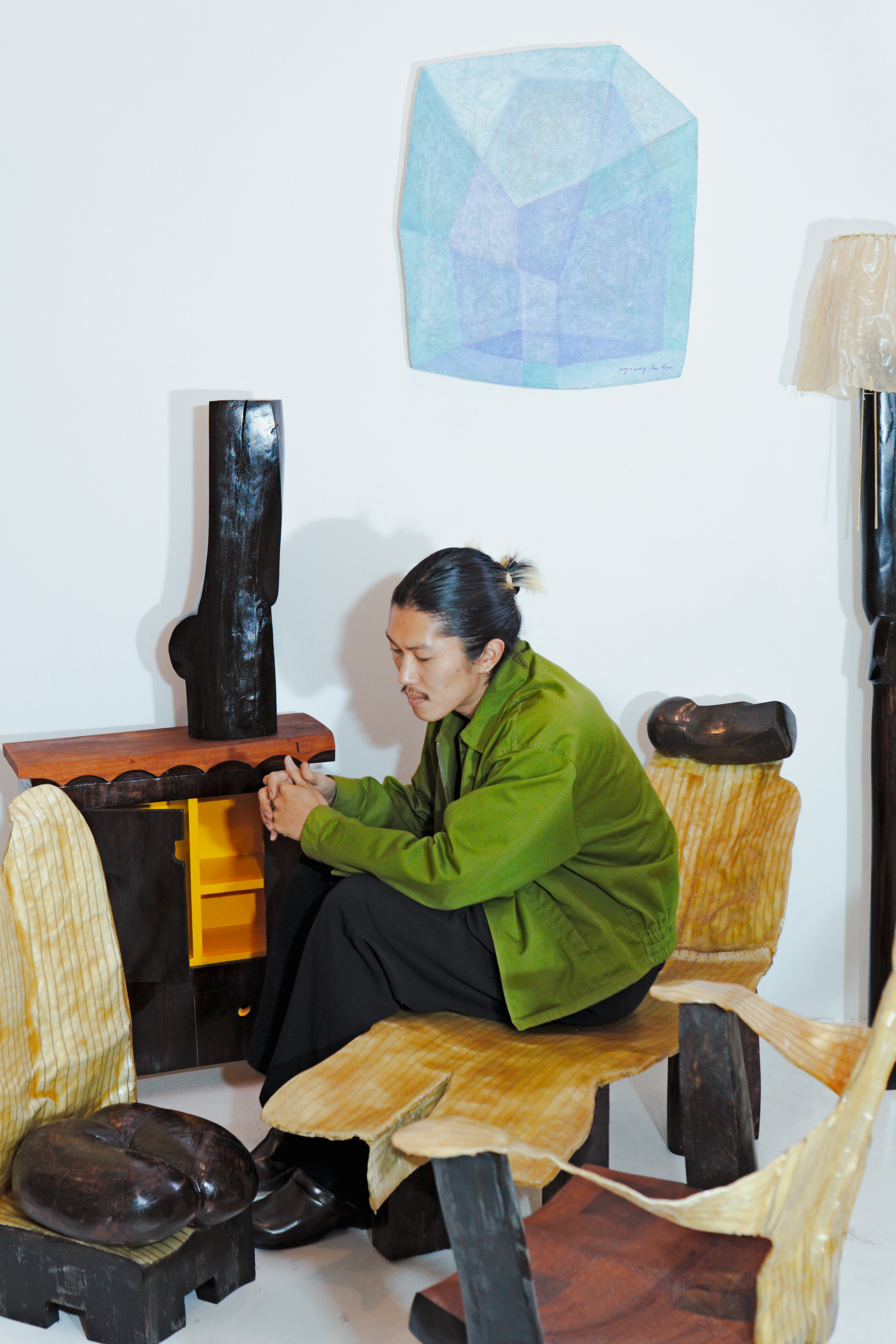
Minjae Kim in his studio with pieces from the collection
‘By allowing rituals of life and their affiliated embellishments to be misconstrued, Minjae Kim furniture turns the Western decorative canon into a romantic imagination — inverting the modernist appropriation of non-Western aesthetics,’ says writer and curator Su Wu, in the essay she penned in collaboration with Kim that accompanies the show. She recounts Kim saying, ‘For the longest time until someone knowledgeable enough enlightened me, I would just clown around enjoying the element of mystery. I can think of a couple ways that this relates to the work I’ve been making. One is the idea of mysticism and play. The other relates to my lack of genuine understanding of aristocratic objects.’
By allowing rituals of life and their affiliated embellishments to be misconstrued, Minjae's furniture turns the Western decorative canon into a romantic imagination - Su Wu
Kim is no stranger to the Western design lexicon. Based in New York, where he studied architecture at Columbia University and then went on to work at the design firm Studio Giancarlo Valle, Kim possesses a unique vantage point that oscillates between an East Asian perspective and the Western gaze. By deploying traditionally Asian decorative techniques, like lacquer and carved wood, alongside more industrial processes and materials, each piece exudes an inviting idiosyncrasy and a magnetic awkwardness that simply draws the viewer in for more.
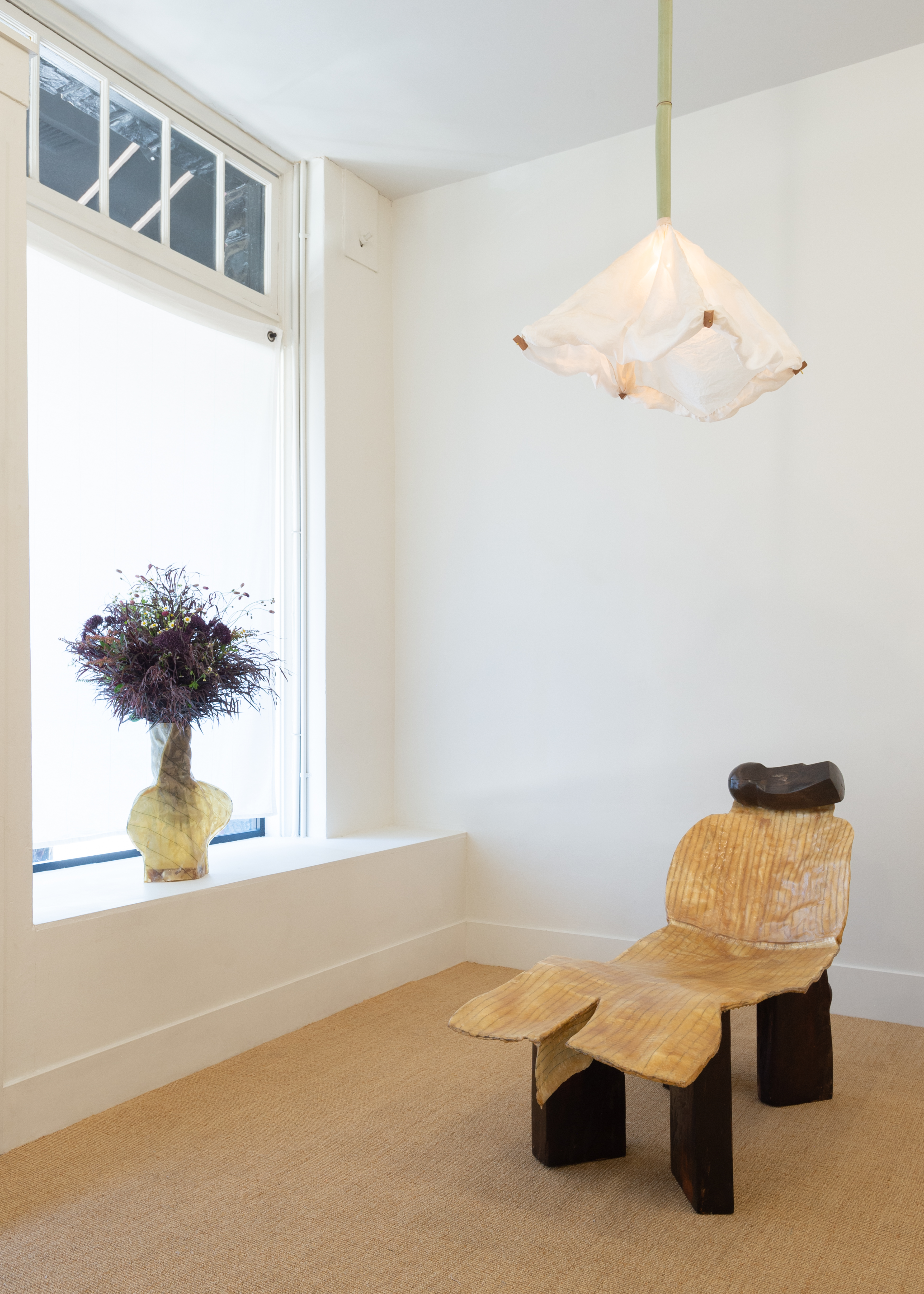
Vase made of quilted fiberglass, ceiling lamp in bamboo, pomegranate dyed silk, brass and mahogany, and chaise longue in teak, lacquer and quilted fiberglass
‘Minjae's interpretation of these typologies is less about explicitly 'disrupting' them and more about understanding them and their users, seeking acquaintance with the real or perceived lifestyle that surrounds them by going through the laborious steps required to make them,’ says Heidi Korsavong, who founded Marta with partner Benjamin Critton.
‘I figure out precision work in the beginning, with the idea in mind to hide it,’ Kim shares. ‘When there is ‘no room for error’, life can become discouraging. I am trying to argue against that, so design becomes more approachable.’
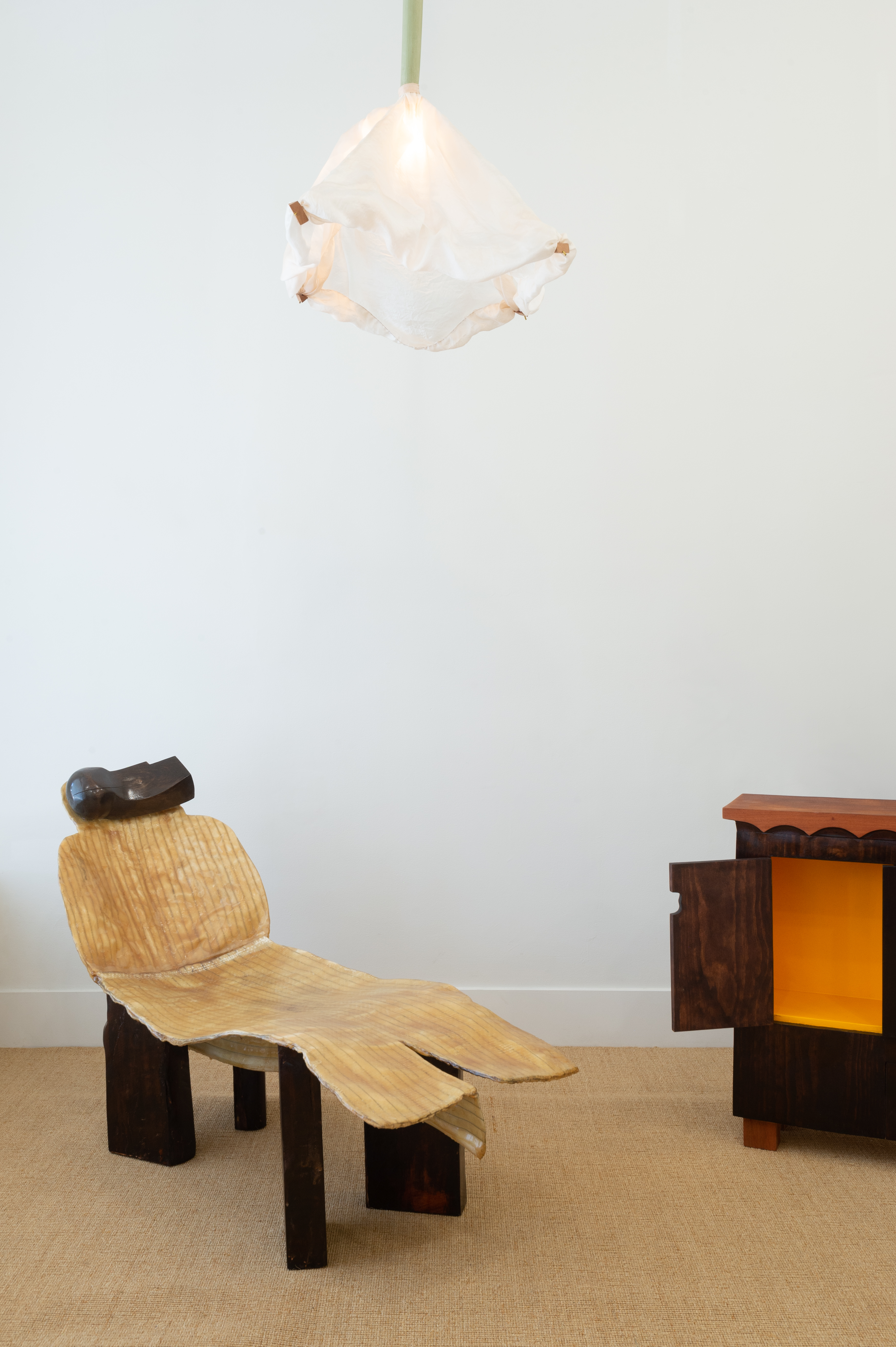
Installation view at Marta, Los Angeles
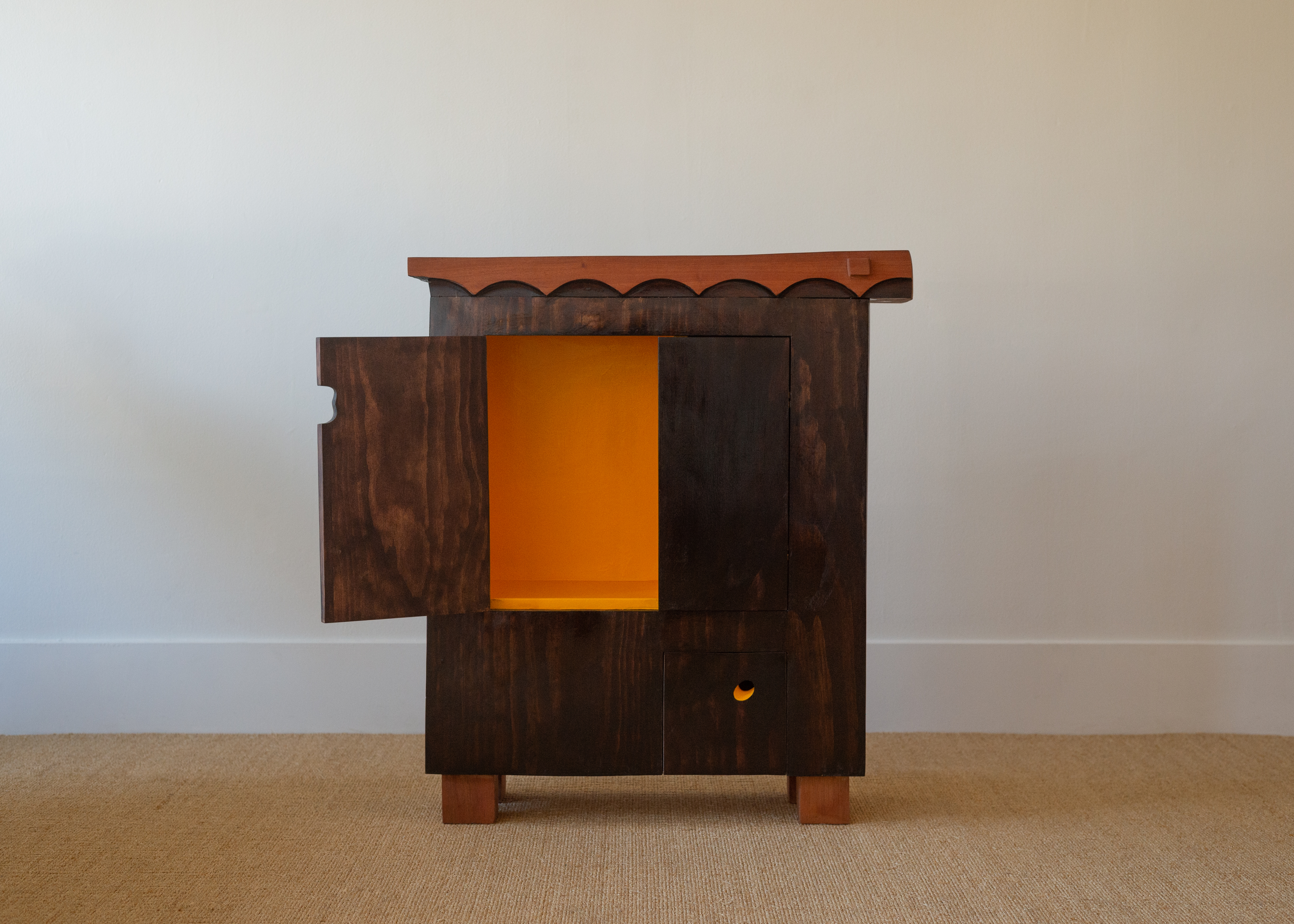
Cabinet made of Douglas Fir, mahogany, lacquer with orange painted interior
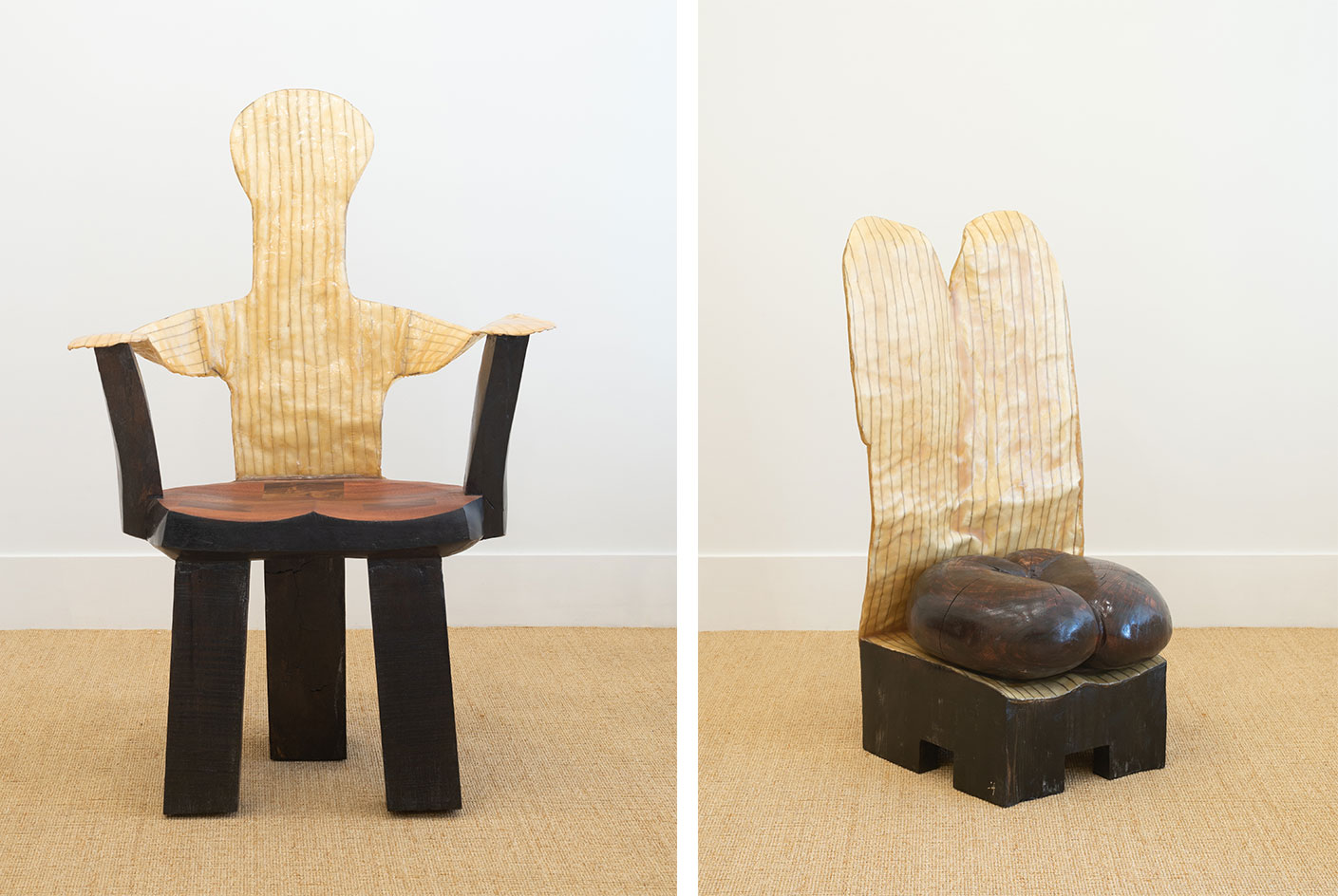
Left, the ‘Freud’ chair, made of mahogany and quilted fibreglass. Right, the ‘Praying’ chair, in quilted fibreglass with Douglas Fir base
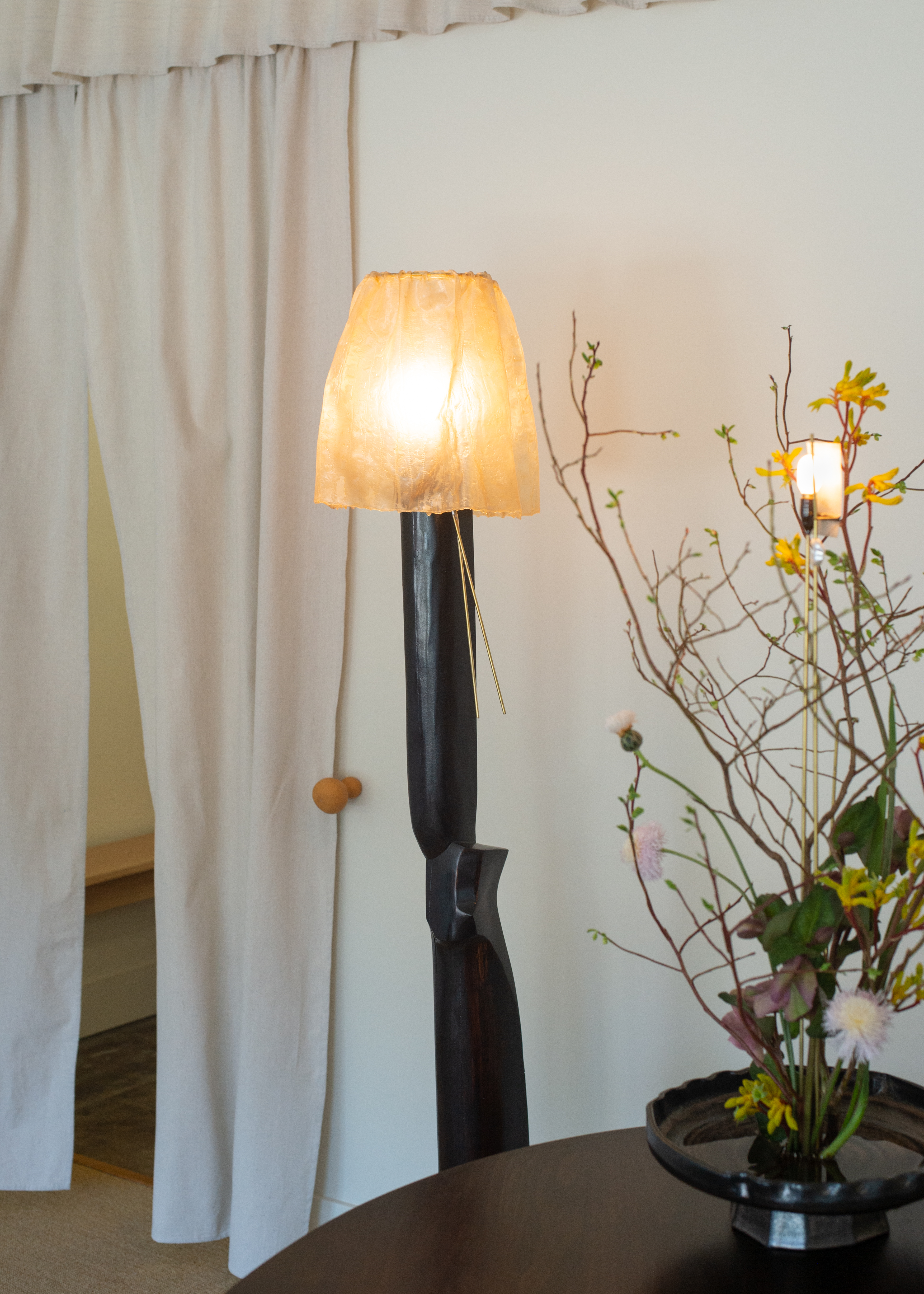
A floor lamp made of Douglas Fir and quilted fibreglass, created for the exhibition, shown alongside a ikebana vase originally conceived in 2019 and now transformed into a lamp
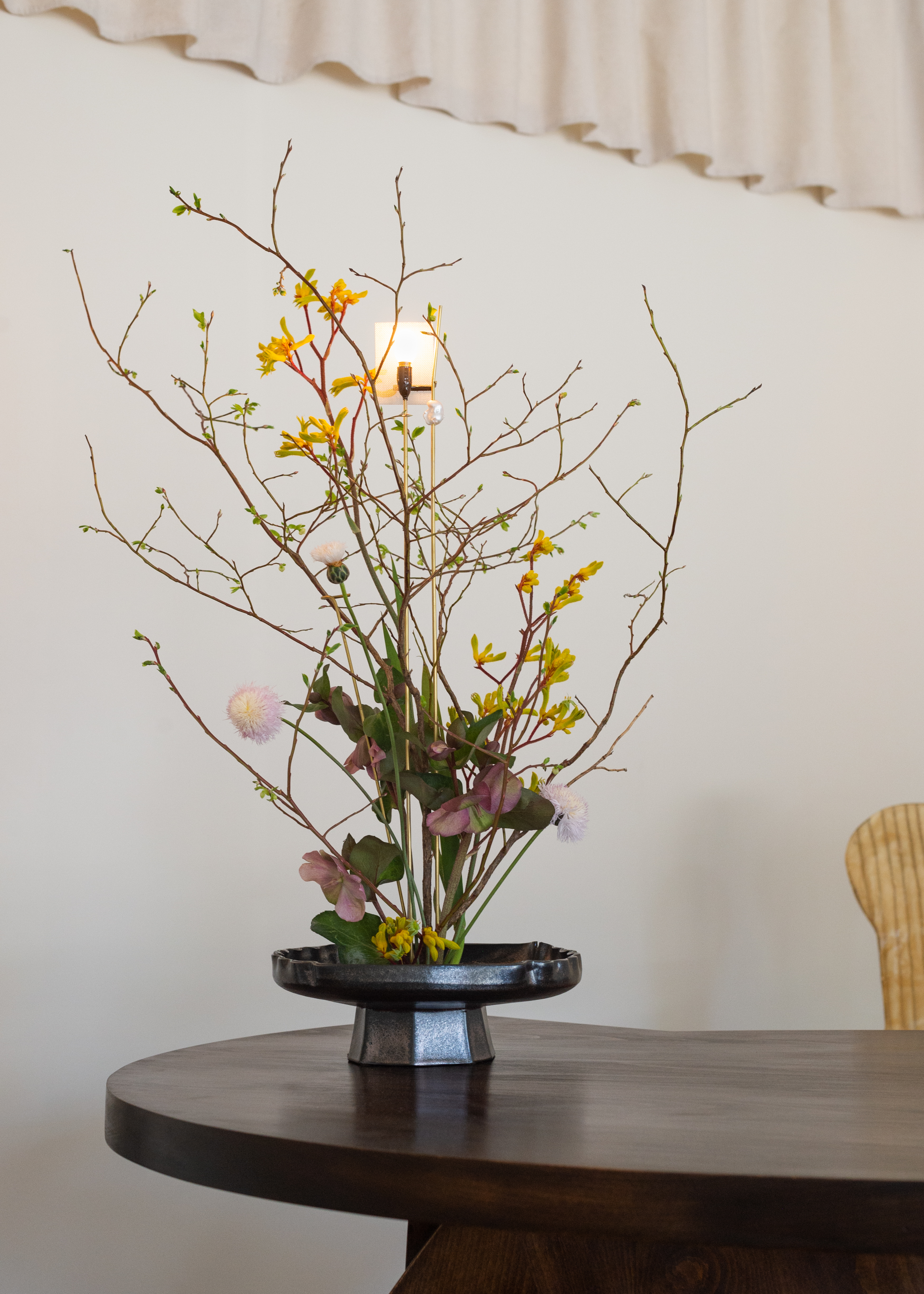
Ikeban Lamp, created in collaboration with ceramicist Natlie Weinberger
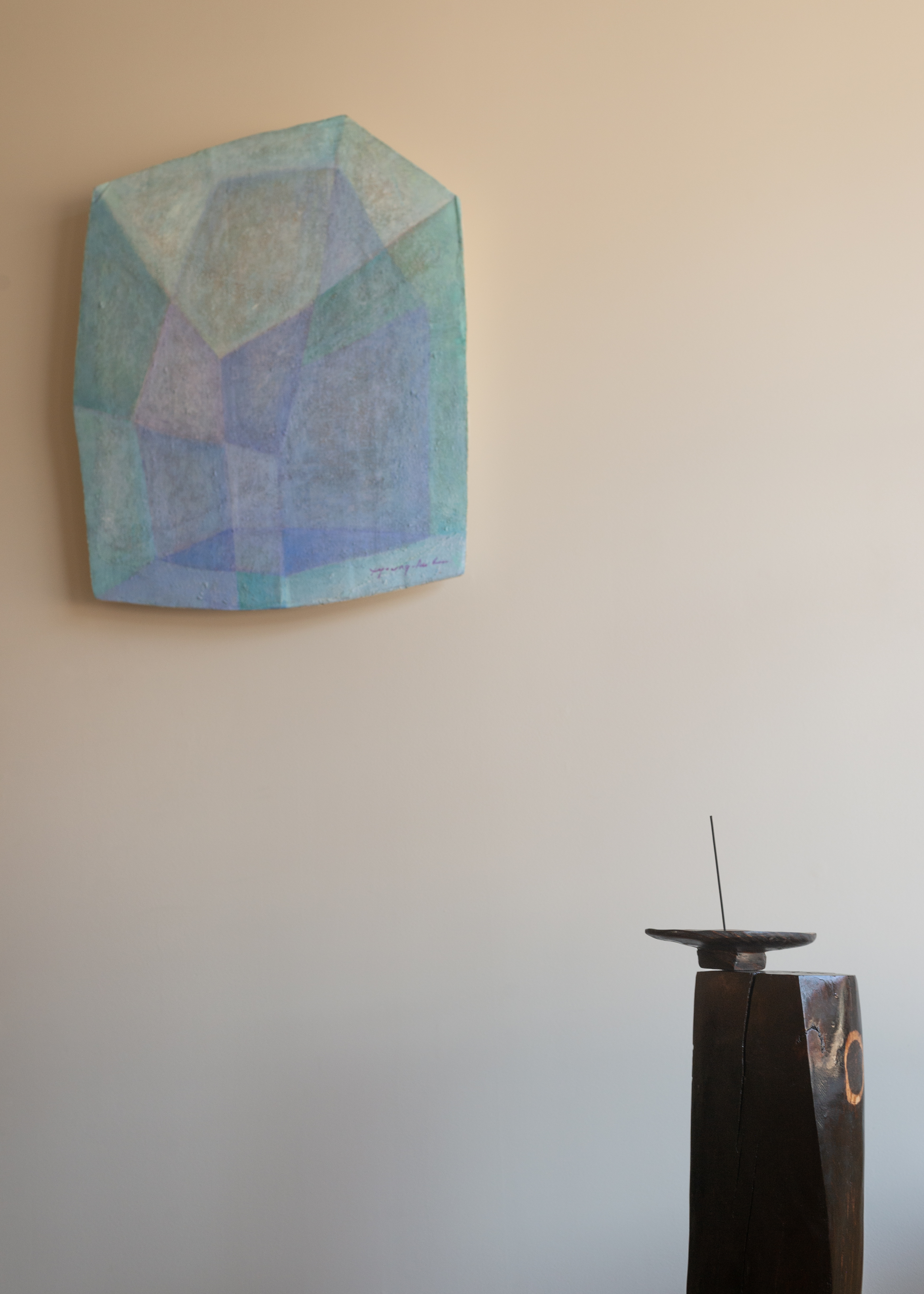
Kim’s oak ‘Column’ and douglas fir incense tray shown alongside an artwork by Myoung-Ae Lee titled ‘Work 1802 – Coexistence’
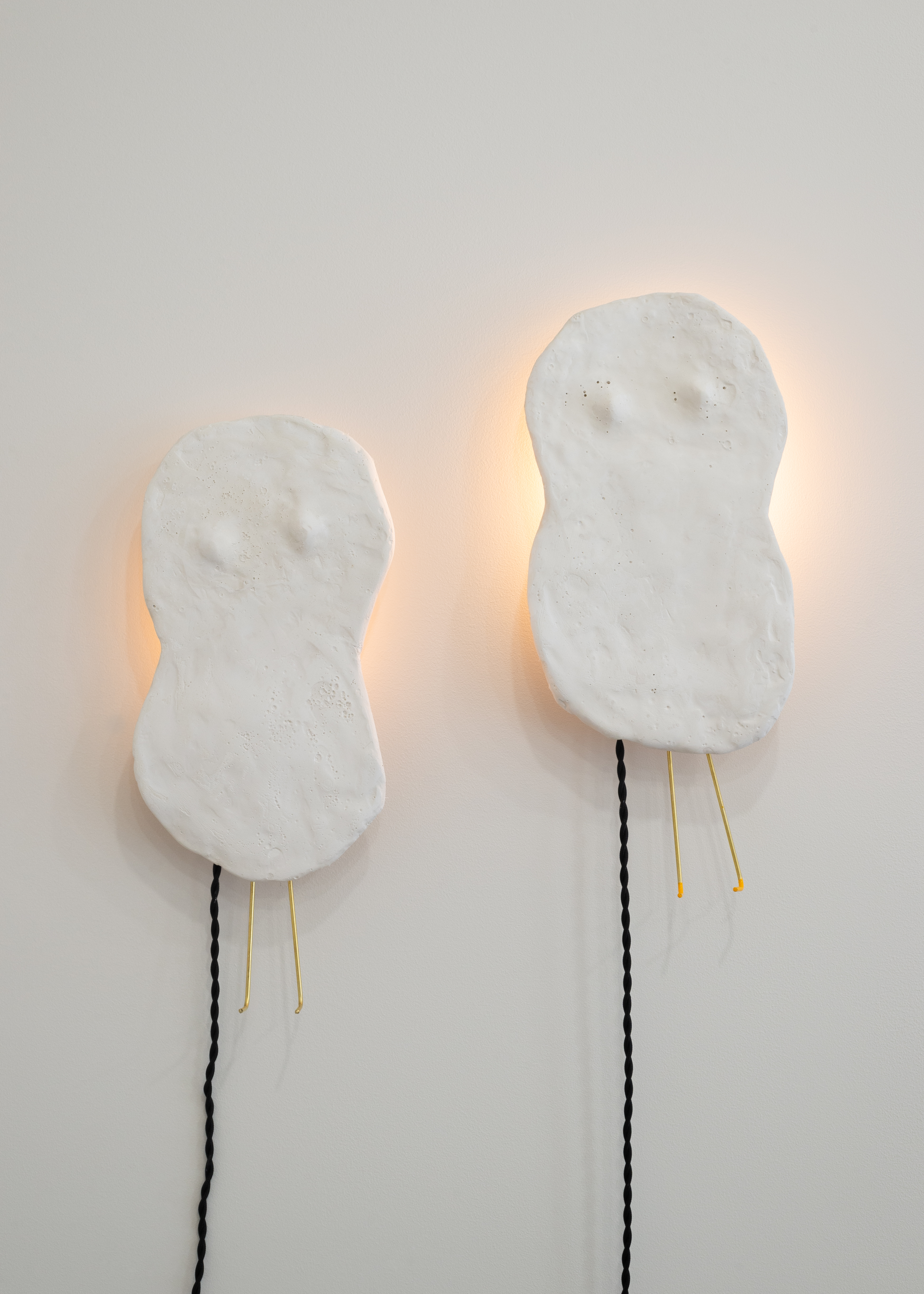
Sconces made of plaster, brass and Douglas Fir
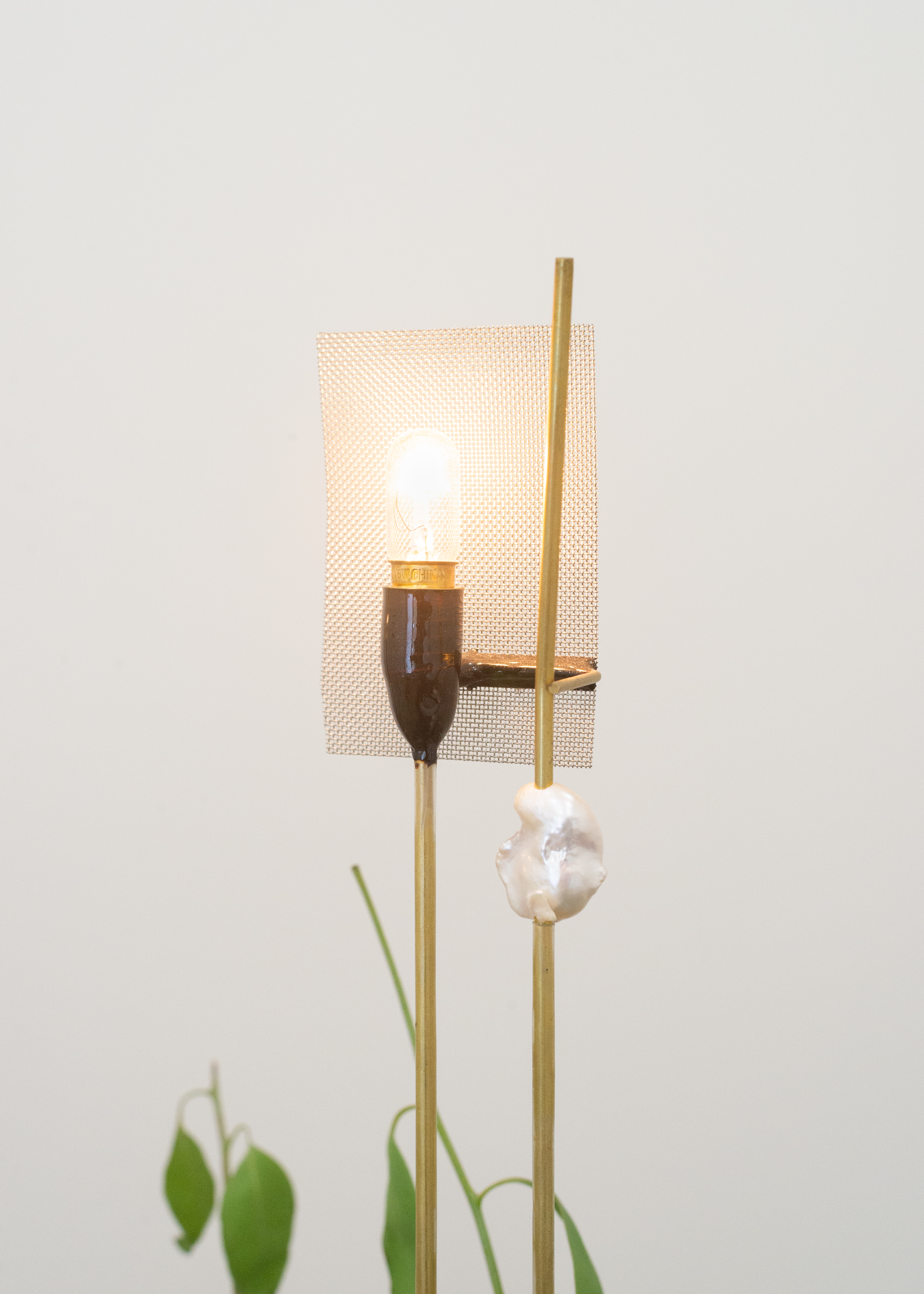
Detail of ‘Ikebana’ lamp
INFORMATION
Minjae Kim, "I Was Evening All Afternoon" is on view at Marta until 29 August 2021
ADDRESS
Wallpaper* Newsletter
Receive our daily digest of inspiration, escapism and design stories from around the world direct to your inbox.
1545 W Sunset Boulevard
Los Angeles, California
90026 – 3333
Pei-Ru Keh is a former US Editor at Wallpaper*. Born and raised in Singapore, she has been a New Yorker since 2013. Pei-Ru held various titles at Wallpaper* between 2007 and 2023. She reports on design, tech, art, architecture, fashion, beauty and lifestyle happenings in the United States, both in print and digitally. Pei-Ru took a key role in championing diversity and representation within Wallpaper's content pillars, actively seeking out stories that reflect a wide range of perspectives. She lives in Brooklyn with her husband and two children, and is currently learning how to drive.
-
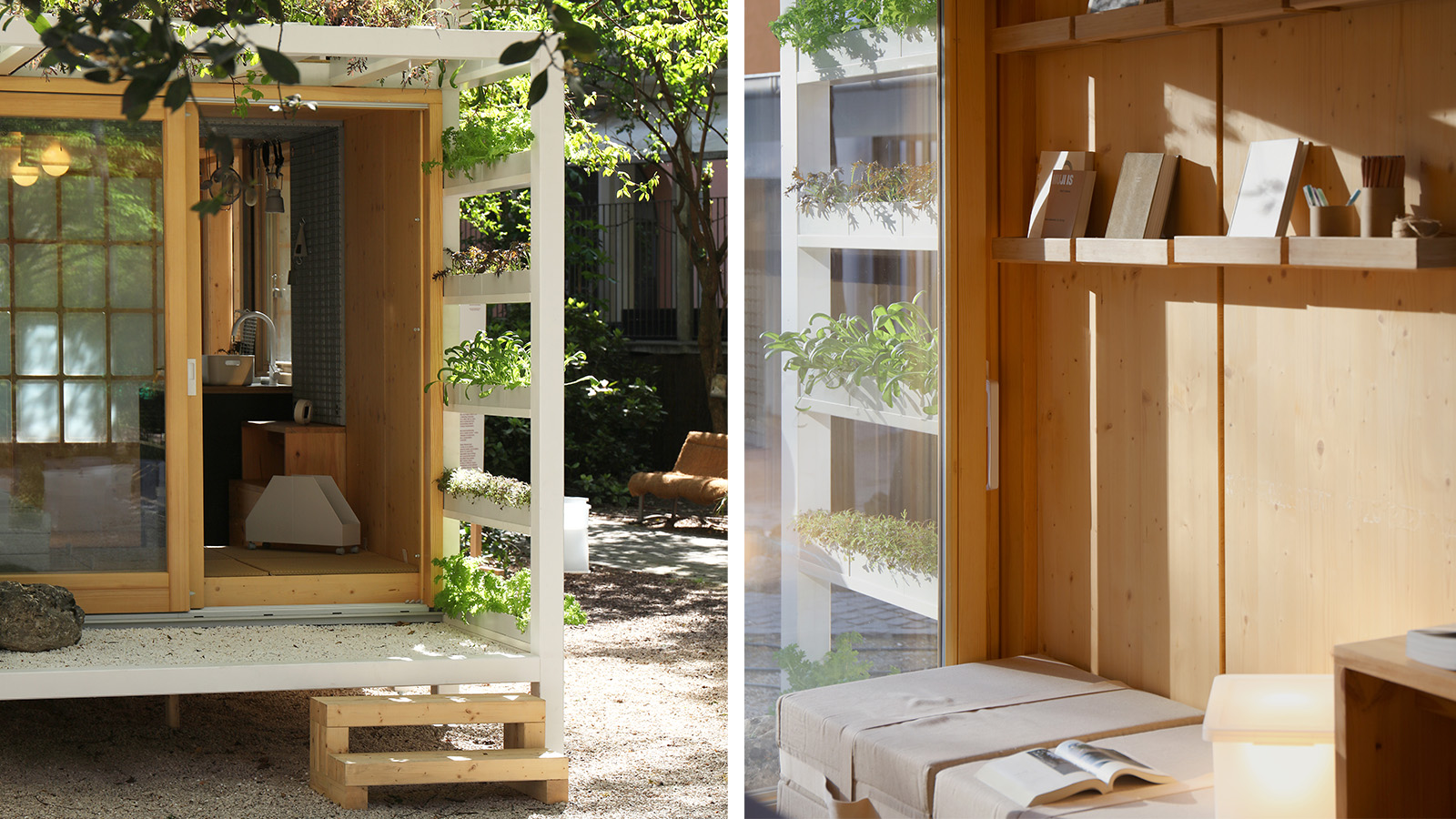 Japan in Milan! See the highlights of Japanese design at Milan Design Week 2025
Japan in Milan! See the highlights of Japanese design at Milan Design Week 2025At Milan Design Week 2025 Japanese craftsmanship was a front runner with an array of projects in the spotlight. Here are some of our highlights
By Danielle Demetriou
-
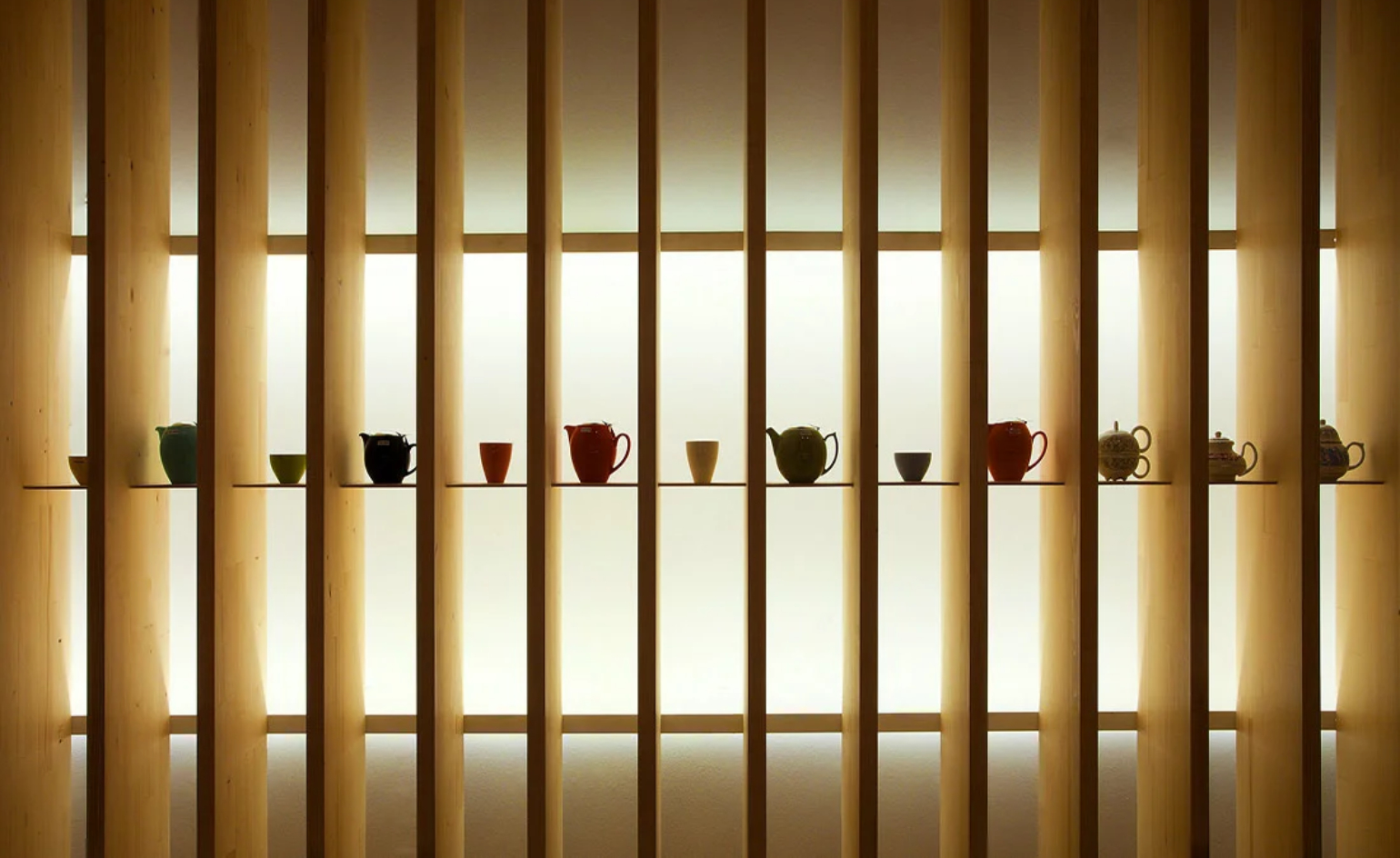 Tour the best contemporary tea houses around the world
Tour the best contemporary tea houses around the worldCelebrate the world’s most unique tea houses, from Melbourne to Stockholm, with a new book by Wallpaper’s Léa Teuscher
By Léa Teuscher
-
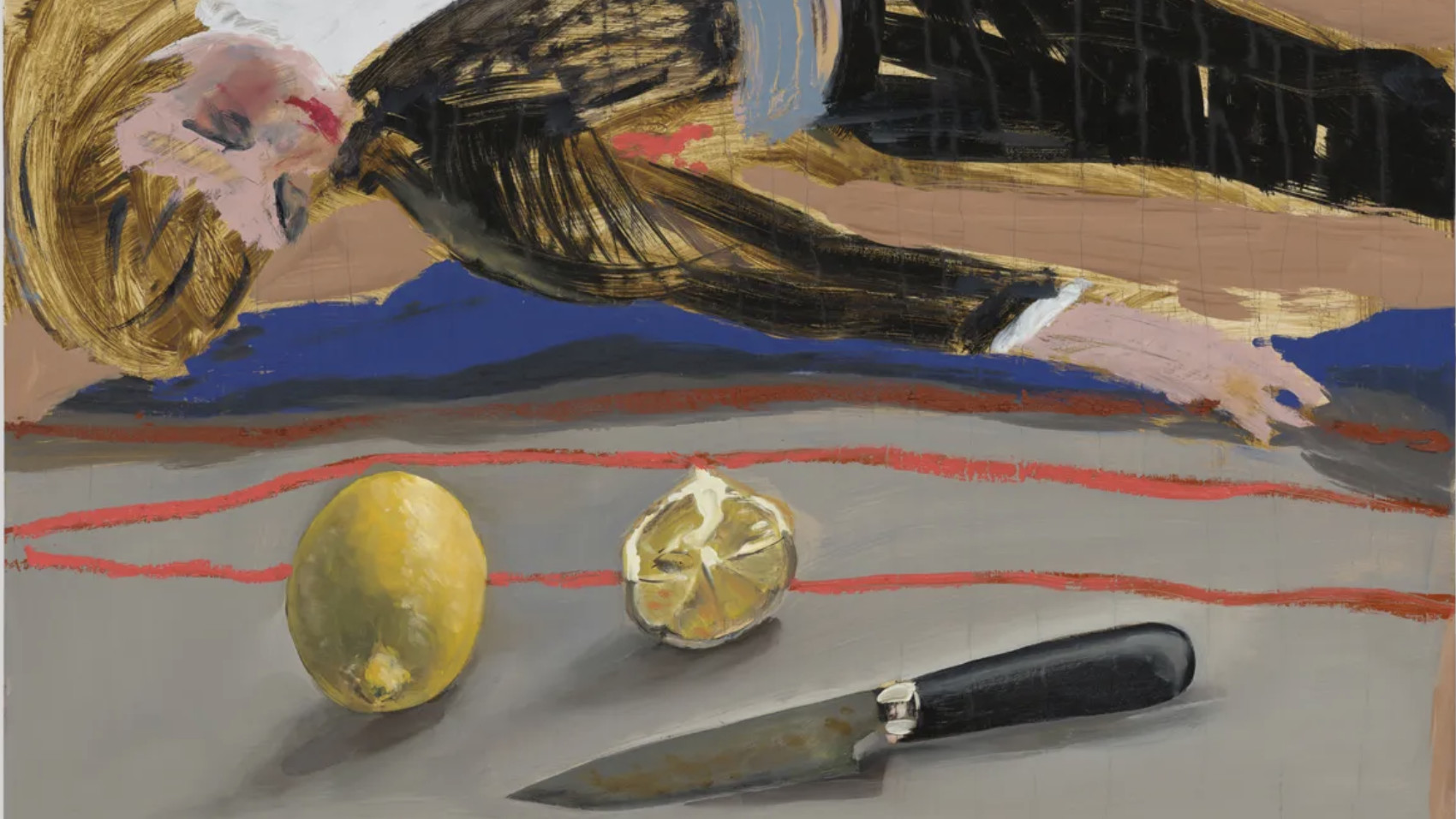 ‘Humour is foundational’: artist Ella Kruglyanskaya on painting as a ‘highly questionable’ pursuit
‘Humour is foundational’: artist Ella Kruglyanskaya on painting as a ‘highly questionable’ pursuitElla Kruglyanskaya’s exhibition, ‘Shadows’ at Thomas Dane Gallery, is the first in a series of three this year, with openings in Basel and New York to follow
By Hannah Silver
-
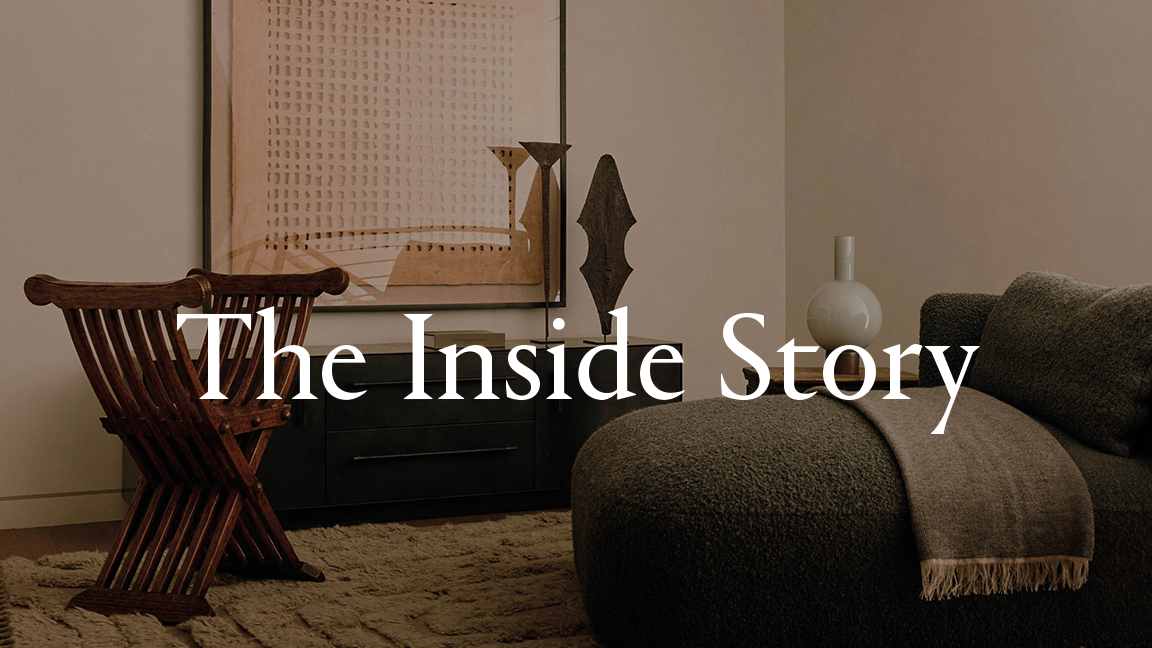 This Colorado ski chalet combines Rocky Mountains warmth with European design nous
This Colorado ski chalet combines Rocky Mountains warmth with European design nousWood and stone meet artisanal and antique pieces in this high-spec, high-design mountain retreat
By Anna Solomon
-
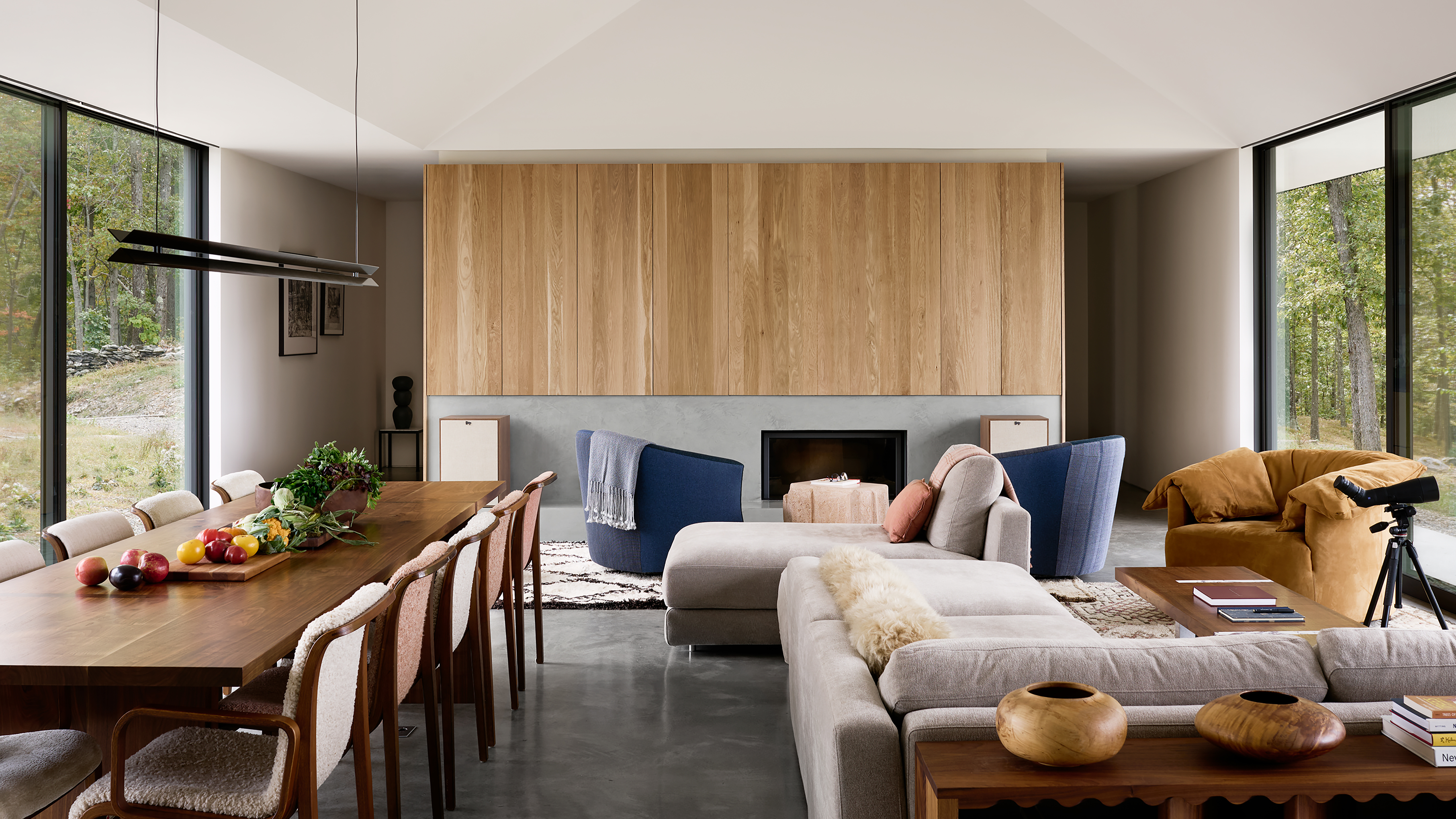 Hilltop hideaway: Colony creates tranquil interiors for a Catskills retreat
Hilltop hideaway: Colony creates tranquil interiors for a Catskills retreatPerched between two mountain ranges, this Catskills retreat marries bold, angular architecture with interiors that offer warmth and texture
By Ali Morris
-
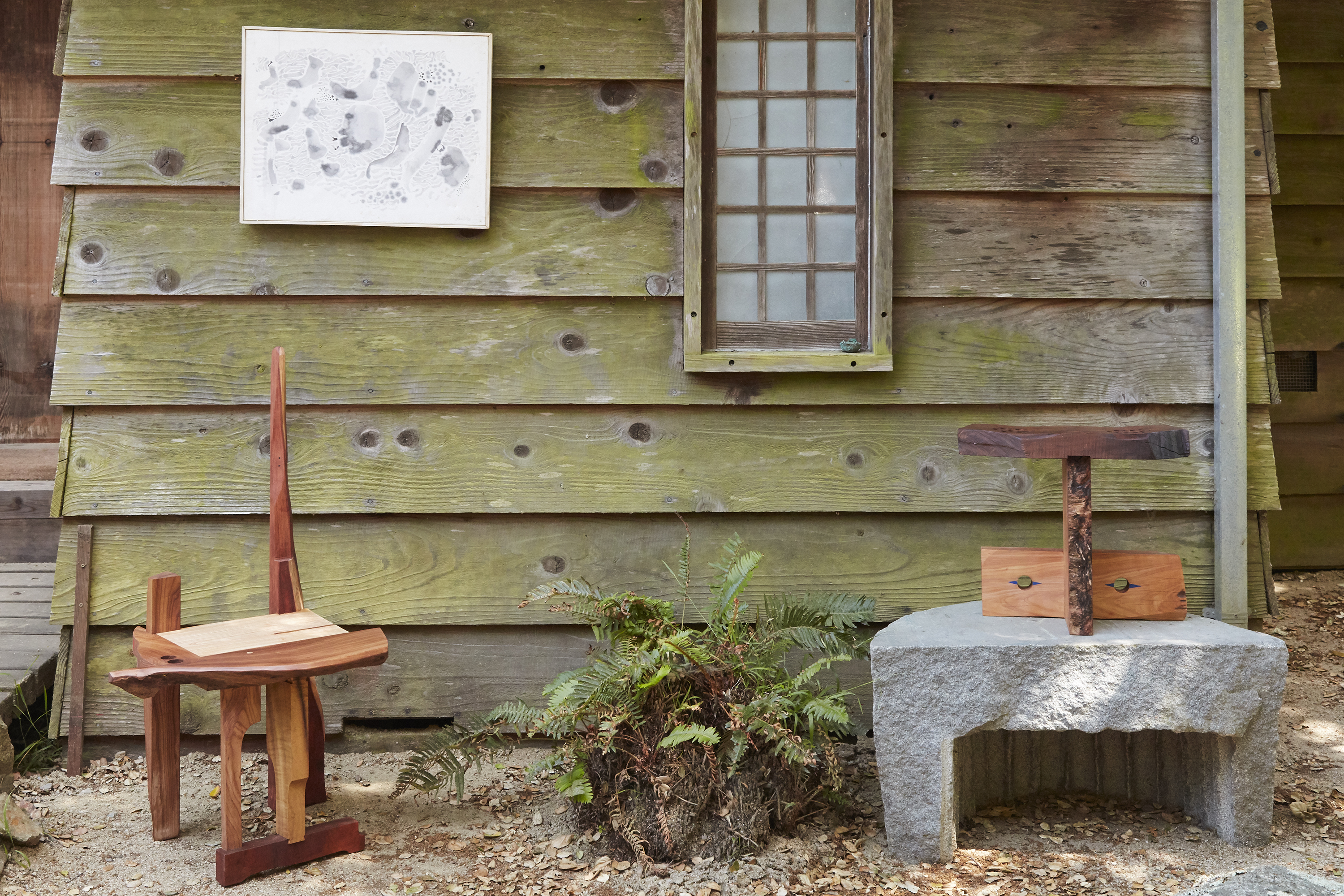 Rio Kobayashi’s new furniture bridges eras, shown alongside Fritz Rauh’s midcentury paintings at Blunk Space
Rio Kobayashi’s new furniture bridges eras, shown alongside Fritz Rauh’s midcentury paintings at Blunk SpaceFurniture designer Rio Kobayashi unveils a new series, informed by the paintings of midcentury artist Fritz Rauh, at California’s Blunk Space
By Ali Morris
-
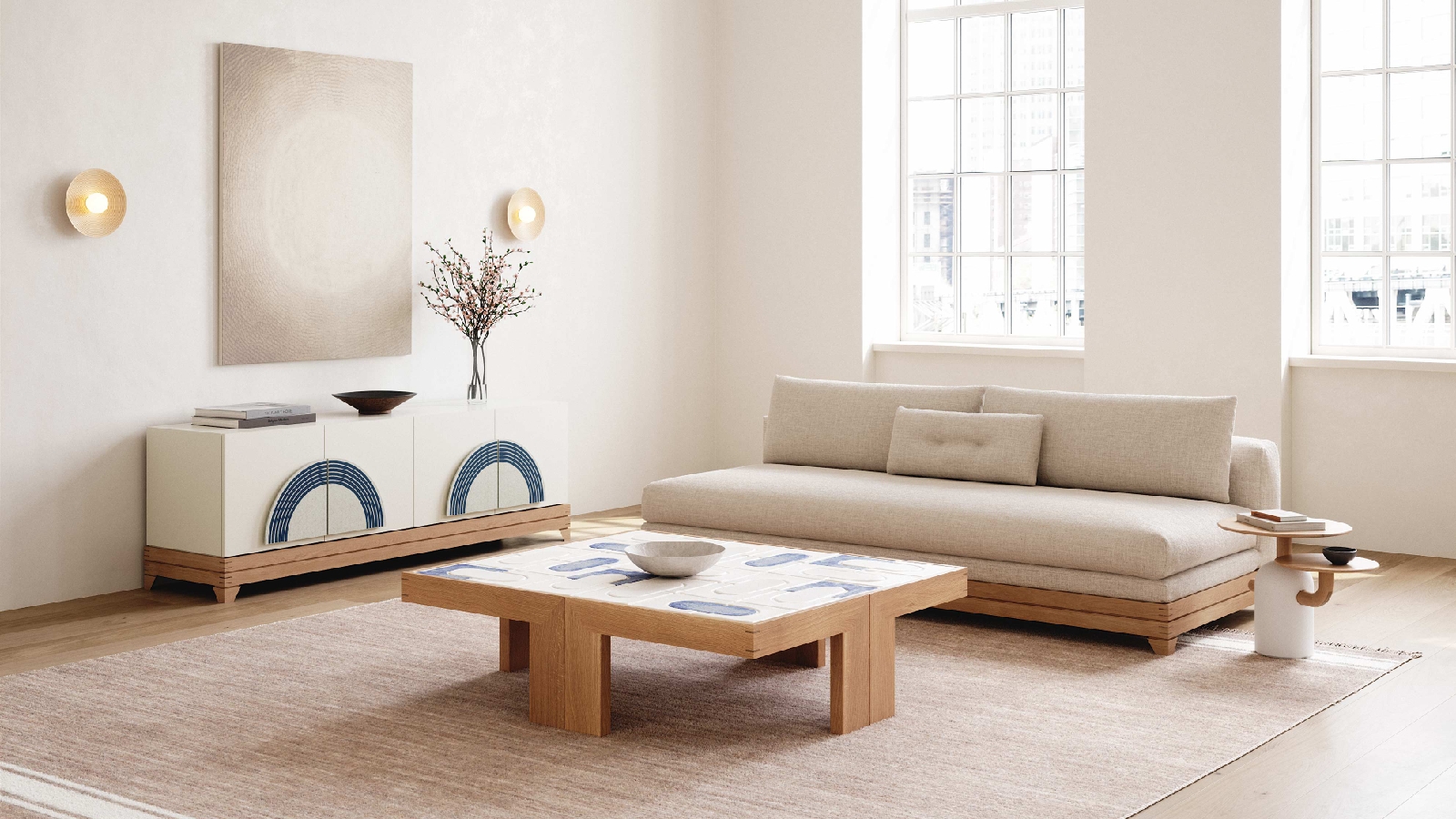 Brooklyn furniture studio Stillmade unveils its first collaborative design series
Brooklyn furniture studio Stillmade unveils its first collaborative design seriesStillmade brings to life the designs of four New Yorkers – Pat Kim, Danny Kaplan, Michele Quan and Mignogna Studio
By Pei-Ru Keh
-
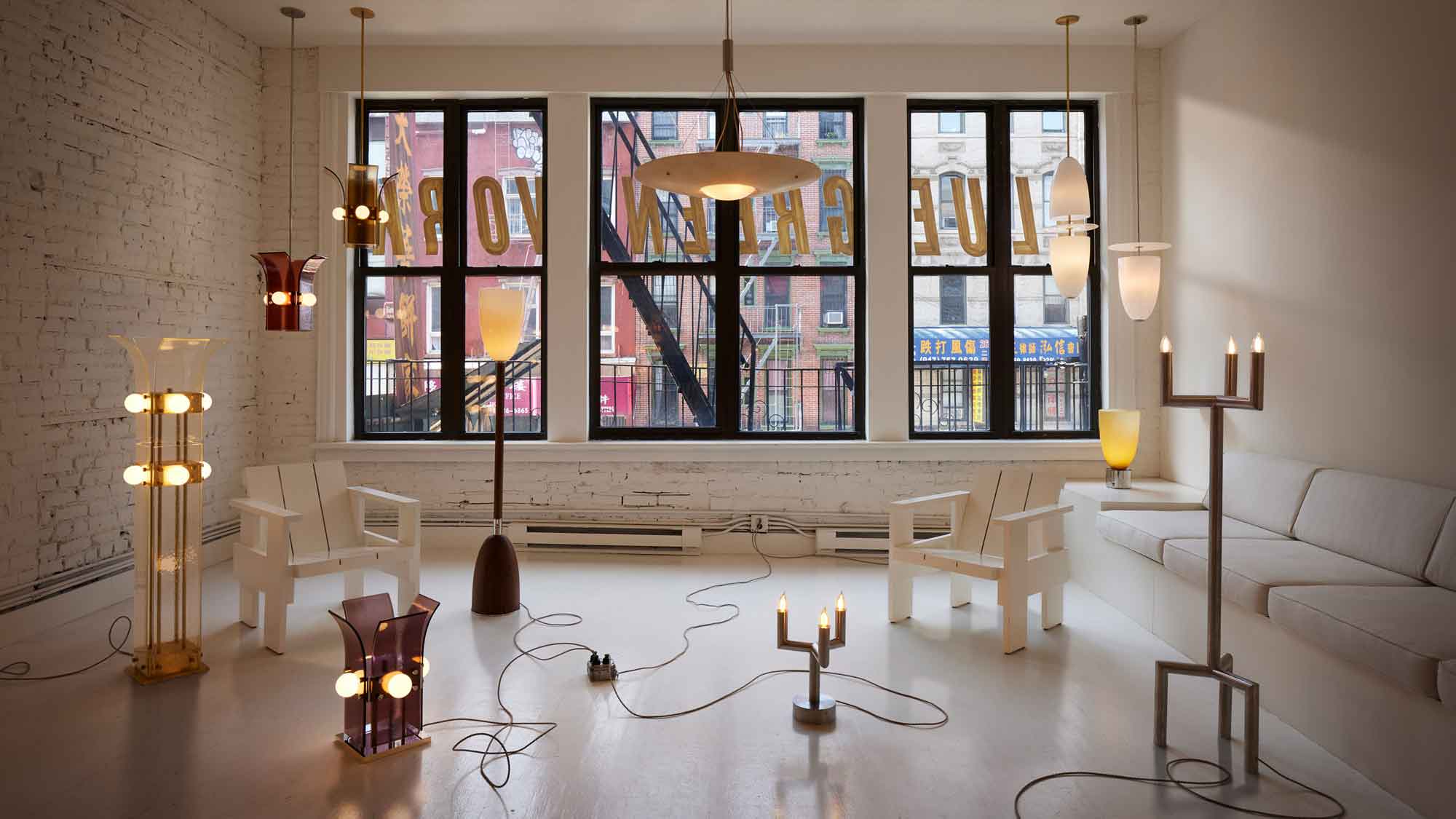 Blue Green Works's lighting champions a new aesthetic in American design
Blue Green Works's lighting champions a new aesthetic in American designManhattan-based design studio Blue Green Works fuses sensuality and masculinity to create mellow, mood-enhancing lighting with visual impact
By Pei-Ru Keh
-
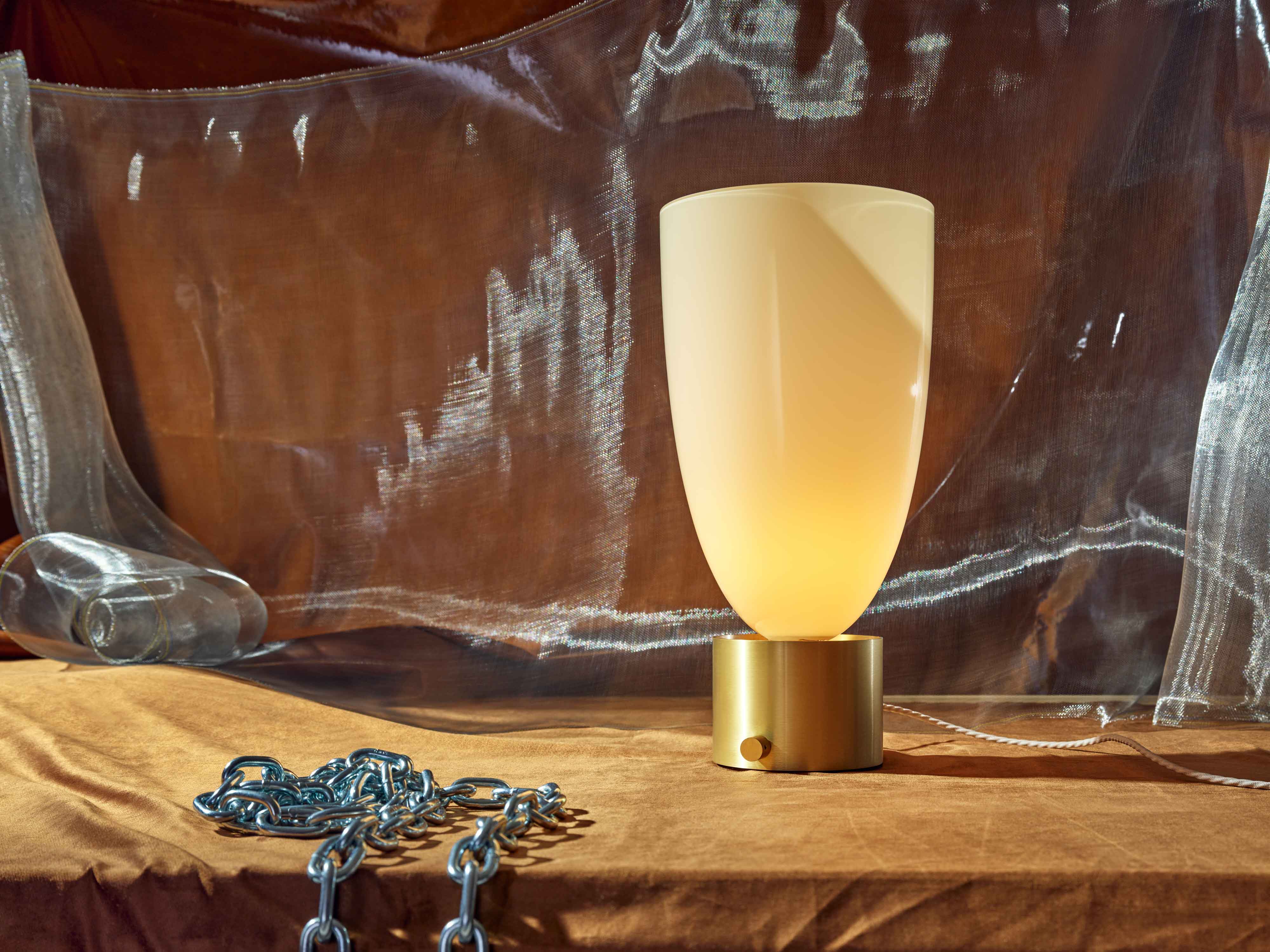 Blue Green Works introduces alluring new lighting collection
Blue Green Works introduces alluring new lighting collectionInspired by iconography, American design studio Blue Green Works introduces five new lighting ranges
By Rosa Bertoli
-
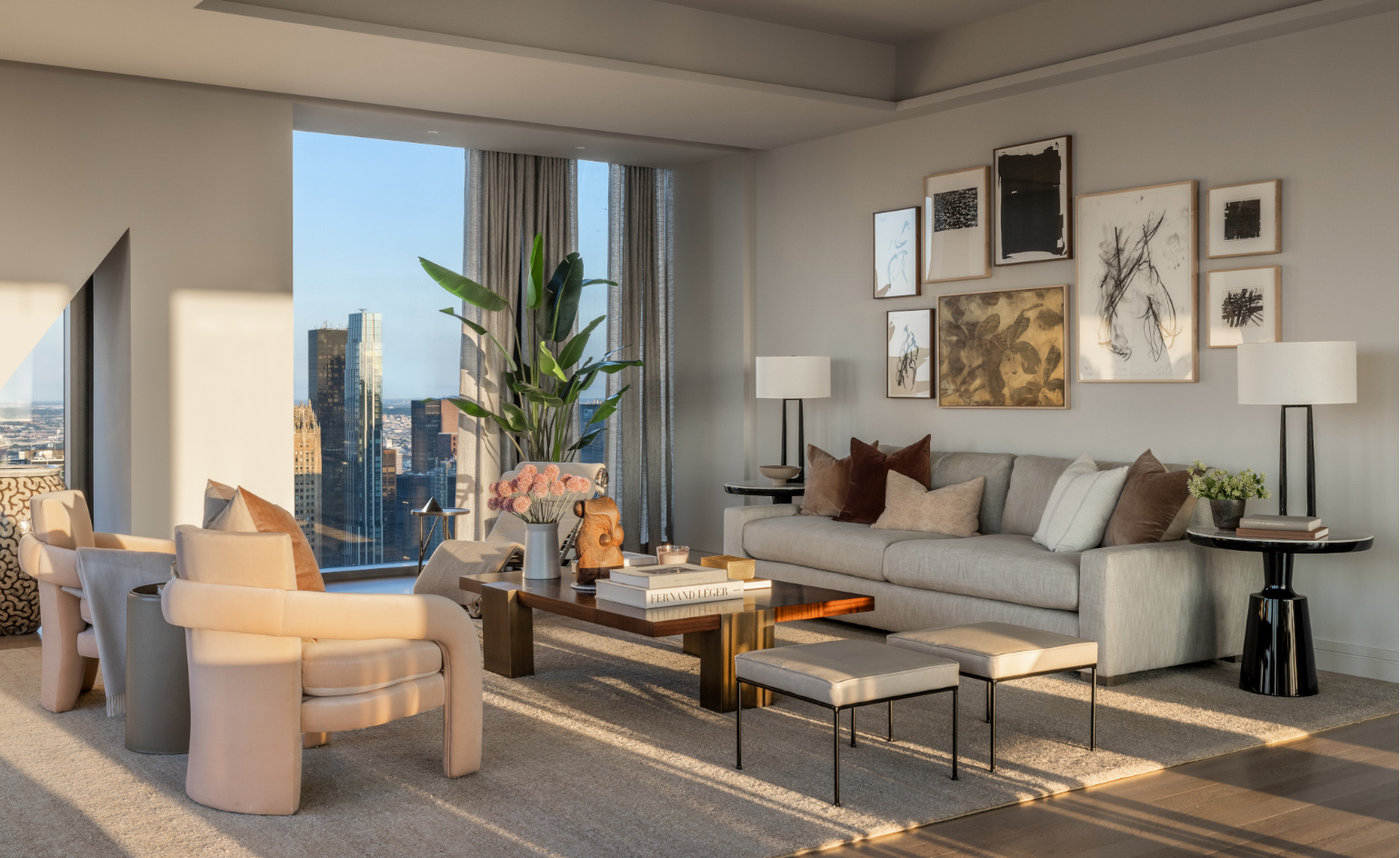 Exclusive peek at artfully curated home in Jean Nouvel’s 53 West 53
Exclusive peek at artfully curated home in Jean Nouvel’s 53 West 53RR Interiors' latest furnishing project – 61A at 53 West 53 – highlights art, architecture and city views inside Jean Nouvel's monumental New York skyscraper in Midtown Manhattan
By Martha Elliott
-
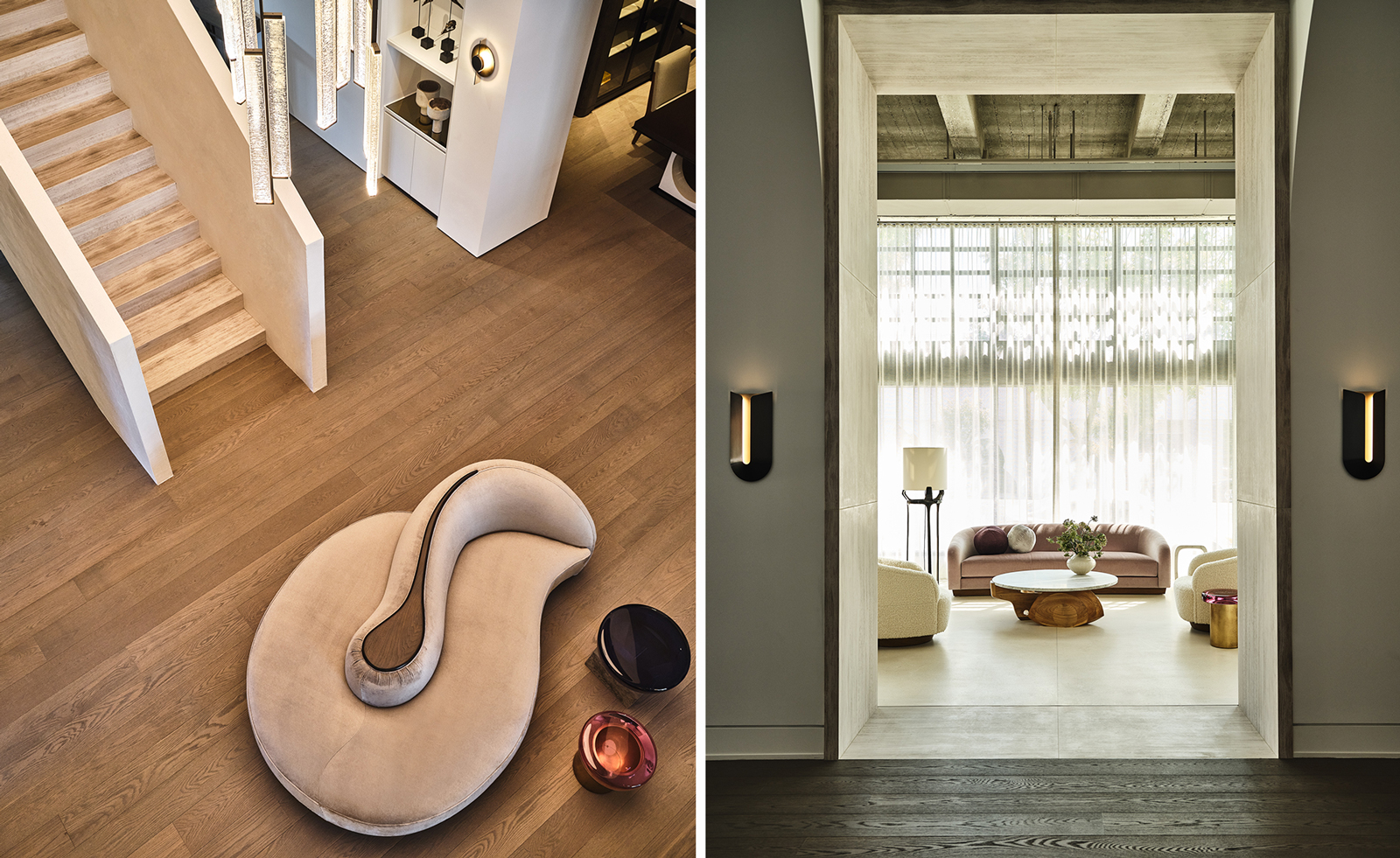 Industrial elements are imbued with elegance in Holly Hunt’s new Los Angeles showroom
Industrial elements are imbued with elegance in Holly Hunt’s new Los Angeles showroomHolly Hunt and architects Johnston Marklee have created a warm and tactile space in a 1940s building
By Hannah Silver